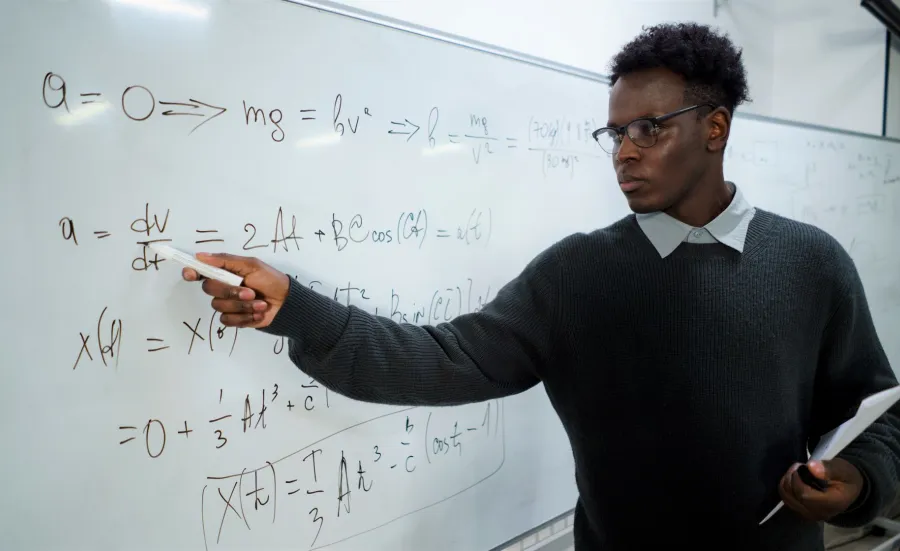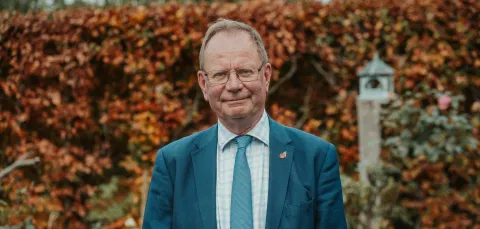In the UK, pupils' maths attainment lags behind that of many young people around the world. Textbooks have not been widely used in maths classes since 1990s reforms. Professor Christian Bokhove's research has pointed to how texbooks could help teachers.
“Teaching is a challenging and time-consuming job. I wanted to support teachers with high-quality instructional materials,” says Christian. In his role at the University’s Mathematics and Science Education research centre, he’s had the opportunity to do this.
Finding out how maths textbooks help pupils in Asia
Christian contributes to the Mathematics and Science Education research centre's work to find out what will improve teaching, focusing on what makes textbooks effective. He looked at teaching practices in Asian countries, where pupils tend to score highly in international maths education assessments.
He found out that maths classes there use textbooks and these do not only cover how to use algorithms, for instance. They also cover why algorithms work. "Both skills and understanding are needed," he wrote. They use images to help explain concepts like these.
This evidence suggested that teachers in the UK should also make use of textbooks to help pupils understand concepts in maths. With textbooks less available in recent years, they had been creating their own resources, adding to their workloads.
“I wanted to help practitioners to use this research to get the most out of their mathematics instructions.”
Discovering how to explain concepts in maths
Christian discovered that a way to quickly act to increase UK pupils' understanding of maths was in the hands of the University.
The School Mathematics Project, borne out of University research in the 1960s, had a big influence on how maths was taught in the UK. This only waned in the 1990s, when there was a turn away from textbooks. Over 4 decades, teachers used the project's textbooks to help pupils to understand topics such as logic, matric mathematics and vectors.
The team wanted to build on what the University had achieved. Christian, who taught secondary school maths for 14 years, saw that teachers needed resources to effectively explain concepts in maths.

Meeting the need for a new maths textbook series
The researcher shared what he learned about teaching methods from Asia in free online courses. More than 12,000 people from 140 countries enrolled on those ‘massive open online courses’ with most teachers taking the course applying what they learned.
Given this demand for support from teachers, the research centre decided to breathe new life into the University's original project to influence UK maths teaching. They put in a funding bid to investigate whether and how they could revive the original textbooks online.
Winning Economic and Social Research Council funding, the team mapped the materials, investigated whether they met curriculum and teacher needs, and then digitised them to make them available.
Improving maths teaching worldwide
So far, more than 1,200 people have accessed the contents of the textbooks. The research centre is working on updating and adding to these materials.
Christian’s colleague Dr Ben Davies, for example, is adapting the digitised textbooks to include online interactive workbooks for pupils.
As the work moves forwards, Christian plans to also focus on helping to improve maths teaching in the Global South.






